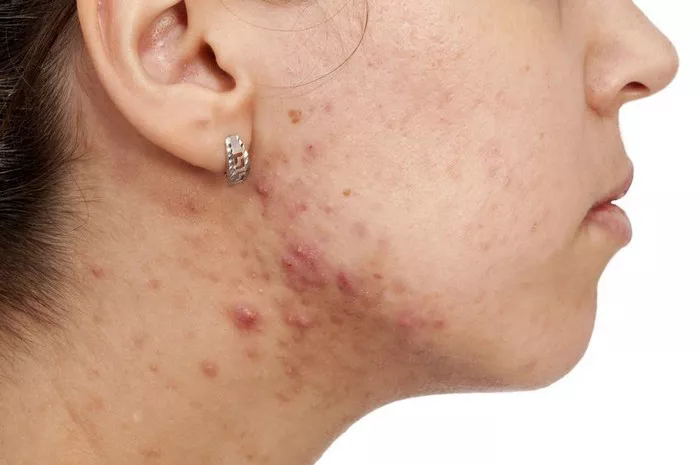Eczema, also known as atopic dermatitis, is a chronic skin condition that causes inflammation, redness, and itching. Many people seek natural remedies to alleviate these symptoms. Essential oils, derived from plants, are popular choices due to their potential benefits for skin health. This article explores the best essential oils for eczema, their properties, and how to use them effectively.
Understanding Eczema
Eczema affects millions of people worldwide. It can appear in various forms and can be triggered by environmental factors, allergens, and stress. Common symptoms include:
- Red, inflamed skin
- Itching
- Dry, scaly patches
- Cracked skin
While there is no cure for eczema, proper management can help reduce flare-ups and improve skin health.
Benefits of Essential Oils for Eczema
Essential oils can provide various benefits for those suffering from eczema:
Anti-inflammatory Properties: Many essential oils can reduce inflammation, helping to soothe irritated skin.
Antimicrobial Effects: Some oils have antibacterial and antifungal properties, which can help prevent infections in broken skin.
Moisturizing Qualities: Essential oils can enhance hydration, combating the dryness often associated with eczema.
Stress Relief: Certain oils promote relaxation, which may help reduce stress-related eczema flare-ups.
The Best Essential Oils for Eczema
1. Lavender Essential Oil
Properties: Lavender oil is well-known for its calming effects. It also has anti-inflammatory and antimicrobial properties.
Benefits for Eczema: Lavender can soothe irritated skin and promote healing. Its relaxing aroma can help reduce stress, potentially minimizing flare-ups.
How to Use: Mix a few drops of lavender oil with a carrier oil, like coconut or jojoba oil. Apply it to the affected areas twice daily.
2. Tea Tree Oil
Properties: Tea tree oil is famous for its potent antibacterial and antifungal properties.
Benefits for Eczema: It can help prevent infections in broken skin and reduce inflammation.
How to Use: Dilute tea tree oil with a carrier oil. Apply it directly to the affected areas. Due to its potency, use it sparingly and do a patch test first.
3. Chamomile Essential Oil
Properties: Chamomile is known for its soothing effects and has anti-inflammatory properties.
Benefits for Eczema: It can calm irritated skin and reduce redness.
How to Use: Combine chamomile oil with a carrier oil and apply it to the skin. It can also be added to a warm bath for overall relief.
4. Frankincense Essential Oil
Properties: Frankincense oil has strong anti-inflammatory and antibacterial properties.
Benefits for Eczema: It can help reduce inflammation and promote healing.
How to Use: Mix a few drops with a carrier oil and apply it to the affected areas. Frankincense oil can also be used in diffusers for its calming aroma.
5. Geranium Essential Oil
Properties: Geranium oil is known for its balancing properties and can help regulate oil production in the skin.
Benefits for Eczema: It may reduce inflammation and promote skin healing.
How to Use: Dilute with a carrier oil and apply to the skin. It can also be added to lotions for enhanced benefits.
6. Carrot Seed Oil
Properties: Carrot seed oil is rich in antioxidants and has regenerating properties.
Benefits for Eczema: It can promote skin cell regeneration and reduce the appearance of scars.
How to Use: Mix with a carrier oil and apply to the affected areas.
7. Coconut Oil
Properties: While not an essential oil, coconut oil is a popular choice for moisturizing and has antifungal properties.
Benefits for Eczema: It can hydrate the skin and prevent dryness.
How to Use: Apply coconut oil directly to the skin after bathing to lock in moisture.
How to Use Essential Oils Safely
Dilution
Always dilute essential oils before applying them to the skin. A general guideline is to use a ratio of 1-2 drops of essential oil per teaspoon of carrier oil.
Patch Testing
Before using any essential oil, perform a patch test. Apply a small amount of the diluted oil to a discreet area of skin. Wait 24 hours to see if any irritation occurs.
Avoiding Irritants
Some essential oils can be irritating to sensitive skin. Avoid using oils that are known irritants or that you have not used before.
Consulting a Professional
If you are unsure about using essential oils or if your eczema is severe, consult a healthcare professional or dermatologist. They can provide personalized advice and treatment options.
Incorporating Essential Oils into Your Routine
Bath Soaks
Adding essential oils to a warm bath can provide relief. Use 5-10 drops of your chosen oil mixed with a carrier oil or Epsom salt. Soak for 15-20 minutes to enjoy the benefits.
Moisturizers
You can enhance your regular moisturizer by adding a few drops of essential oil. Mix thoroughly before applying it to the skin.
Diffusion
Using a diffuser with calming essential oils like lavender can create a soothing environment, reducing stress that may trigger eczema flare-ups.
Compresses
For targeted relief, soak a clean cloth in a mixture of water and essential oil. Apply it to the affected area for 10-15 minutes.
Lifestyle Changes to Support Eczema Management
While essential oils can help, they are most effective when combined with a holistic approach. Consider these lifestyle changes:
Hydration
Drink plenty of water to keep your skin hydrated from the inside out.
Diet
Incorporate foods rich in omega-3 fatty acids, such as fish, flaxseeds, and walnuts. These can help reduce inflammation in the body.
Stress Management
Practice relaxation techniques such as yoga, meditation, or deep breathing exercises to help manage stress.
Skin Care Routine
Use gentle, fragrance-free products for your skin care routine. Avoid harsh soaps and hot showers that can strip the skin of its natural oils.
Conclusion
Essential oils offer a natural way to support skin health and manage eczema symptoms. Lavender, tea tree, chamomile, frankincense, geranium, carrot seed, and coconut oil are among the best options. Always dilute oils before applying them to the skin, and perform patch tests to avoid irritation.
Incorporating essential oils into a broader skin care routine that includes hydration, a balanced diet, and stress management can enhance their effectiveness. If you have severe eczema or concerns about using essential oils, consult a healthcare professional for guidance. With the right approach, you can find relief and improve your skin’s condition.
Related topics:


























